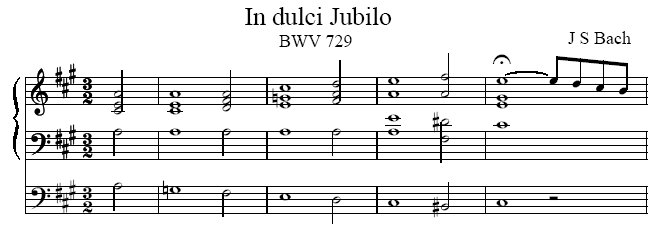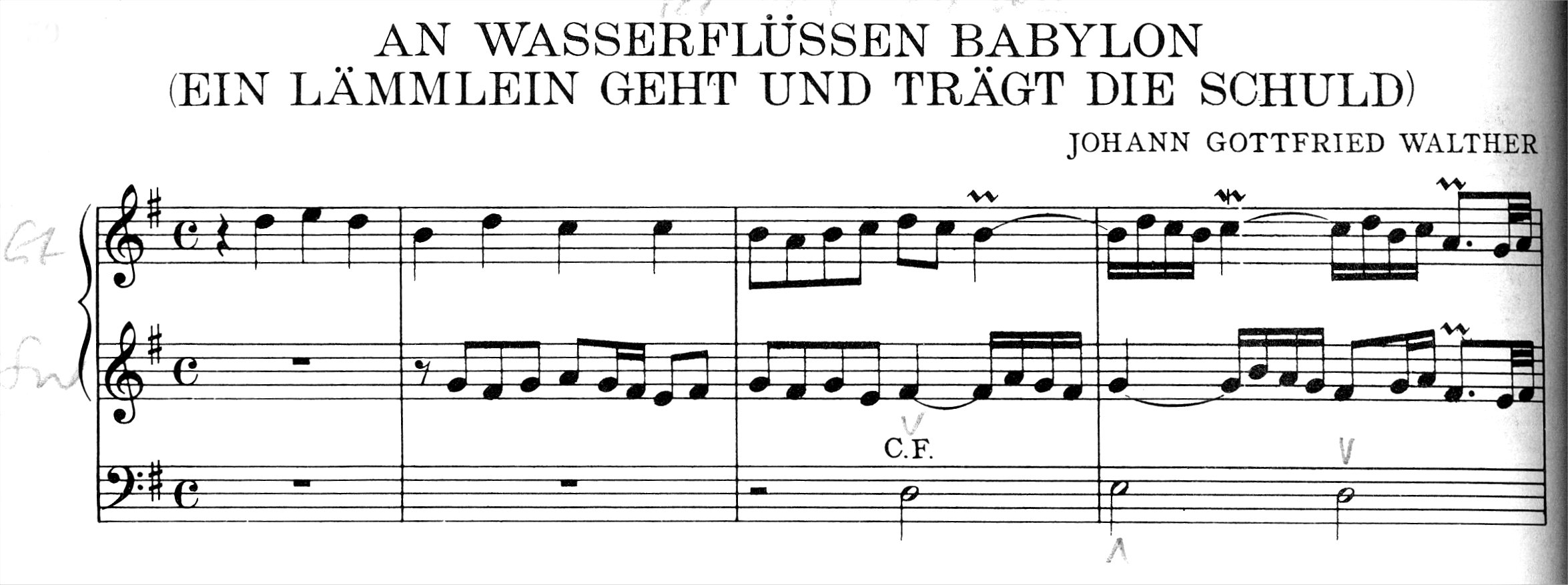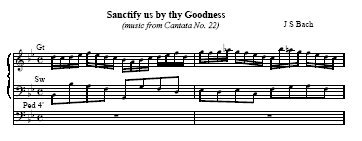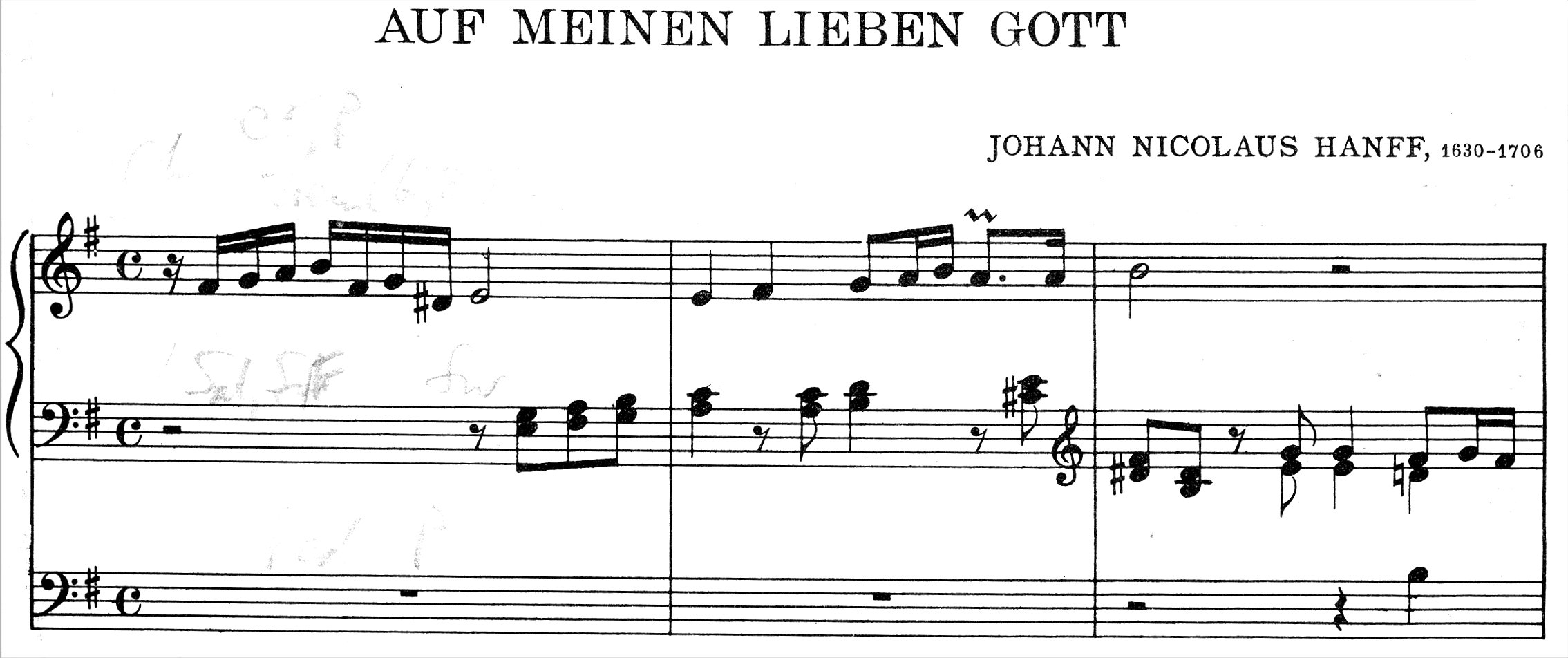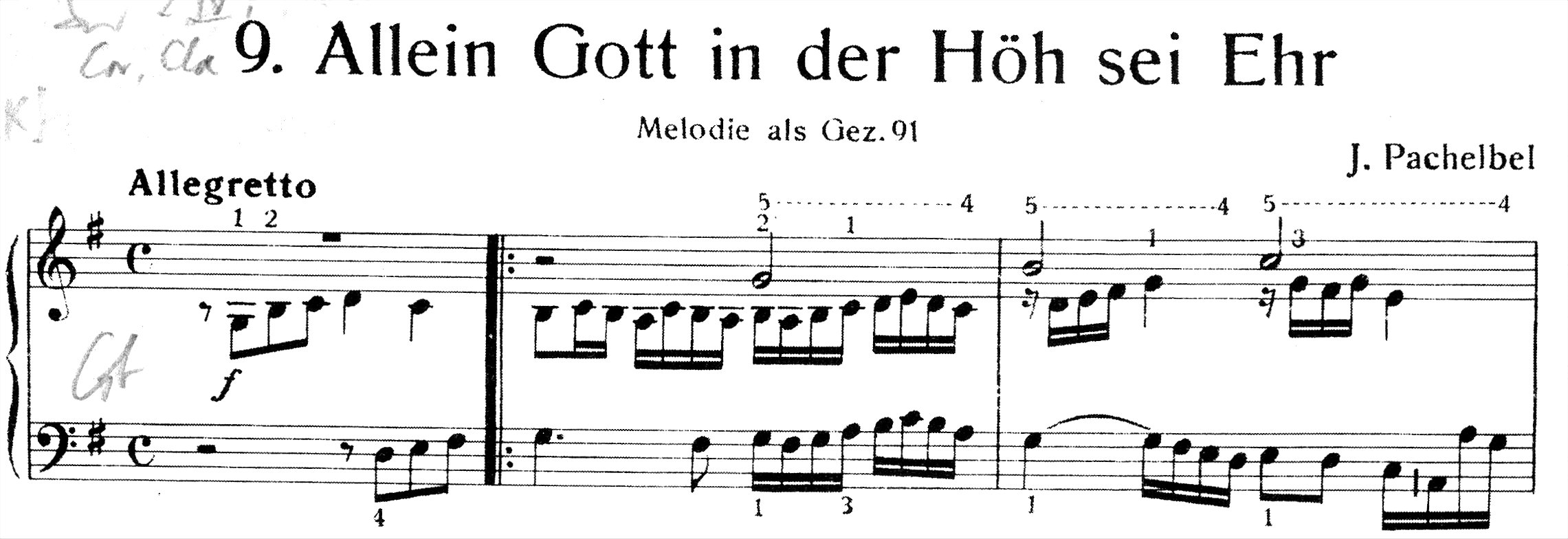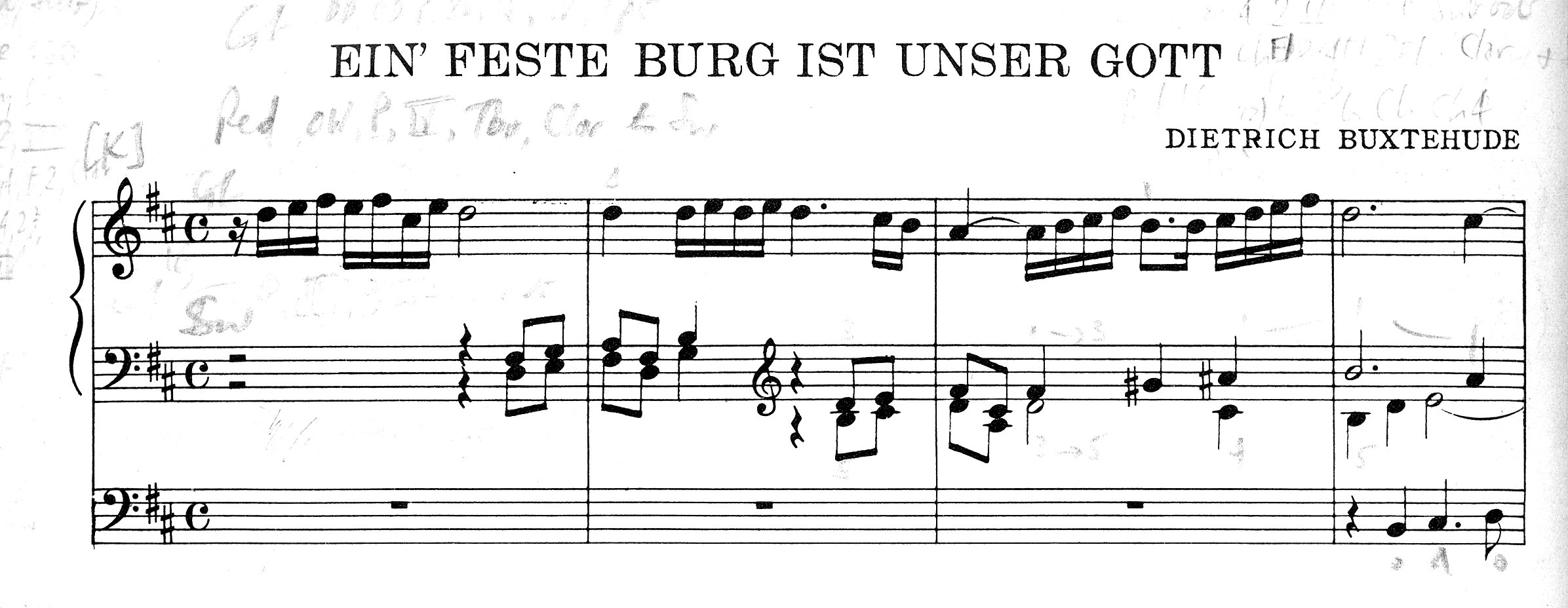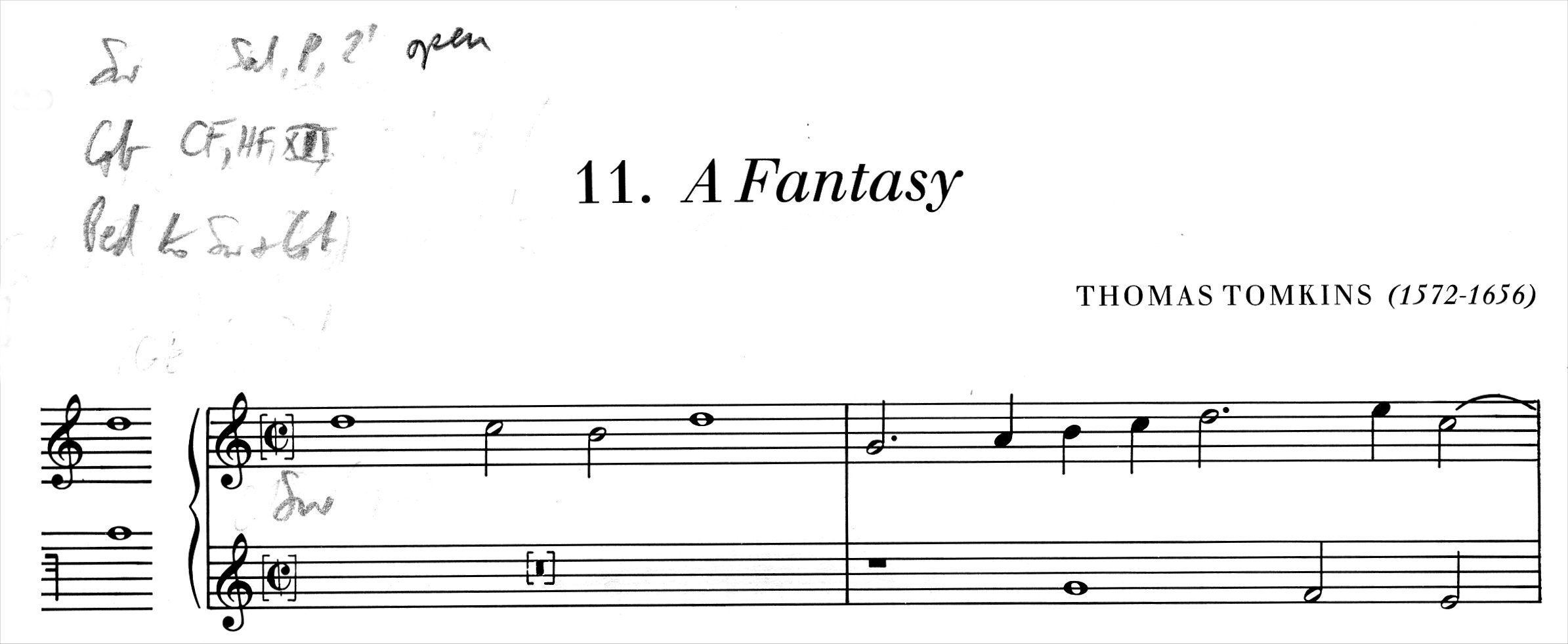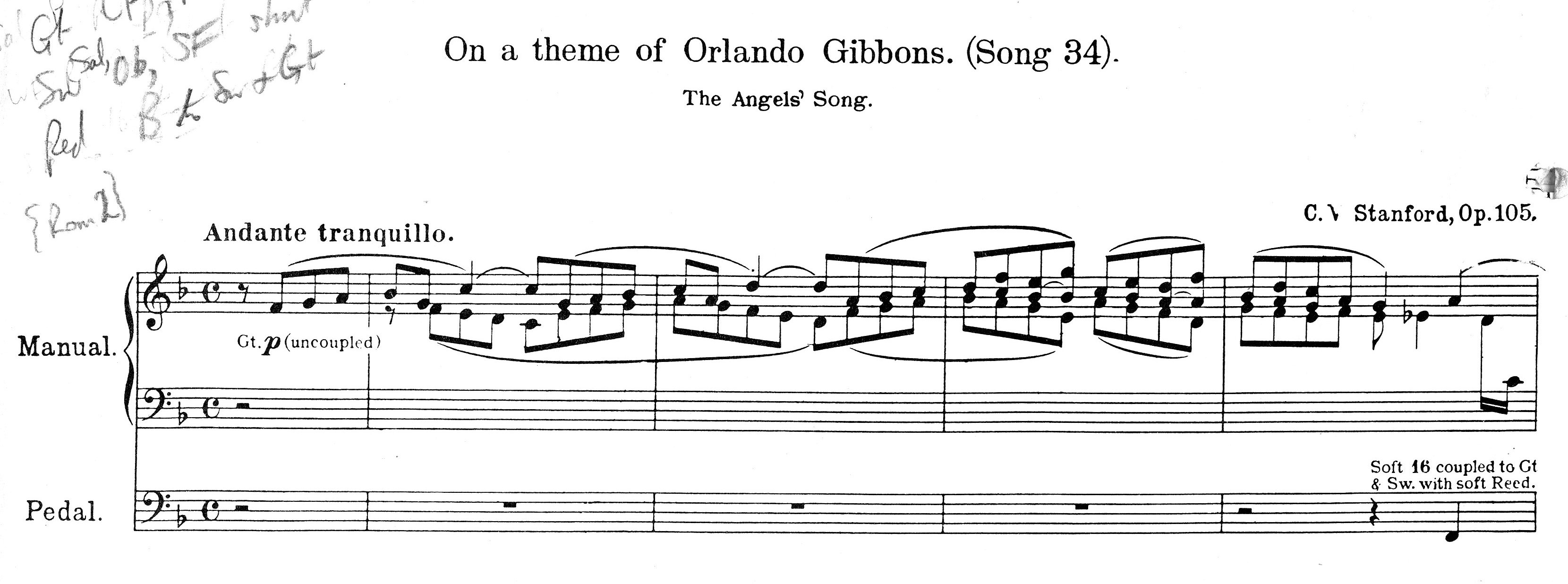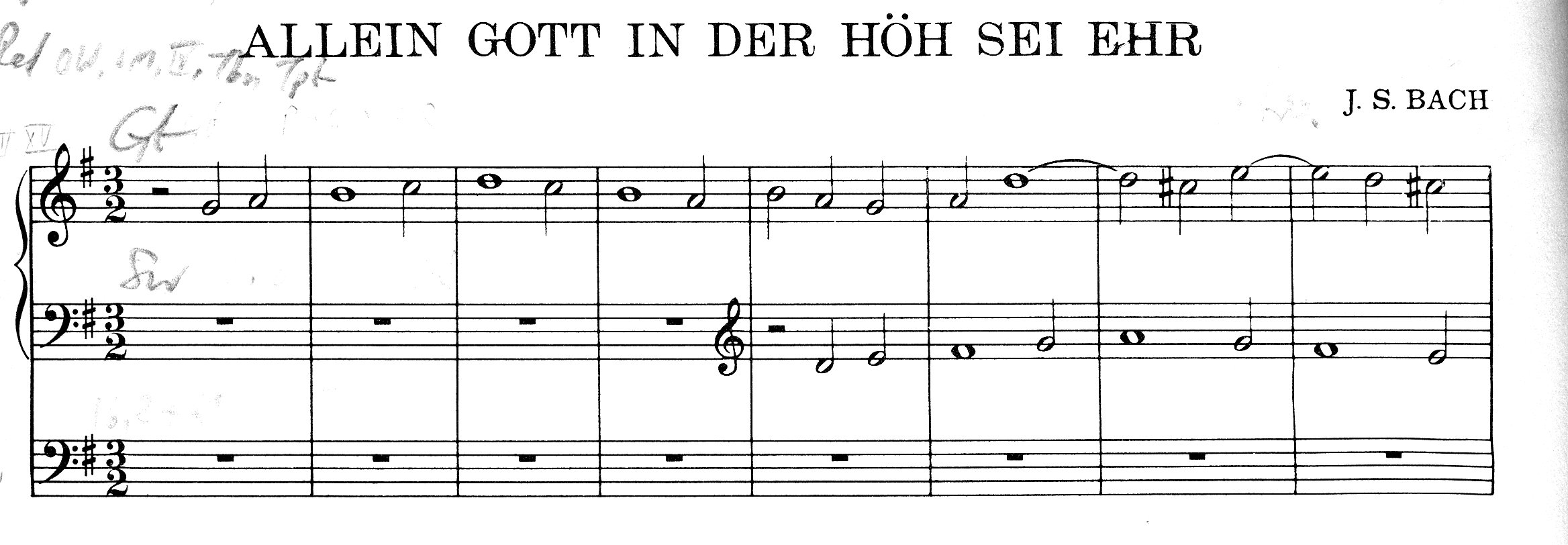| MUSIC |
Our musical interests are in the areas of classical, folk and instrumental jazz, though we claim no depth of knowledge in the latter two.
Tony is reasonably competent on piano and church organ and was formerly an amateur singer (baritone). Elisabeth sang alto in the choir at St Aidan's URC, Hexham, when it was a 4-part ensemble with Tony conducting.
| Some music played on the organ at St Aidan's United Reformed Church, Hexham: |
| We have a Viscount Vivace 40 digital organ, installed in 2011. It has two manuals, a useful range of stops and several "voices" (baroque, romantic and symphonic), also temperaments (tunings) to improve clarity in simple keys when playing older music. Tony is fortunate to be able to share the playing Sunday by Sunday with another organist, Ian Stewart, so only needs to play every other week - more time to practise! |  |
| Techie stuff and a confession: |
I record music using a Voice Systems RD-80E filer, as MIDI data. This means it records not the sound, but keystrokes and stop changes, so when I play the recording back, the organ can't tell whether it's a person or the filer playing. This is very useful when I need to go downstairs to conduct an introit - I can leave the filer playing something I've recorded earlier. The audio files were created by playing the MIDI recordings back and taking the organ audio output via a Behringer Xenyx 302USB filer, as MIDI data. This means it records not the sound, but keystrokes and stop changes, so when I play the recording back, the organ can't tell whether it's a person or the filer playing. This is very useful when I need to go downstairs to conduct an introit - I can leave the filer playing something I've recorded earlier. The audio files were created by playing the MIDI recordings back and taking the organ audio output via a Behringer Xenyx 302USB audio mixer to the USB input of a laptop running Nero Wave Editor audio mixer to the USB input of a laptop running Nero Wave Editor . .AND...I can also edit the MIDI file, using Sonar Home Studio 4  , so I can record several takes, then cut-and-paste. And, it must be admitted, I can correct the occasional mis-hit (as you get older, your fingers get smooth and these become more frequent - that's my excuse anyway). BUT I undertake to put on this page only pieces where I can play every bar correctly, even when I couldn't guarantee to play the piece right through without a slip (and, please, no references to Andre Previn and Eric Morecambe!). , so I can record several takes, then cut-and-paste. And, it must be admitted, I can correct the occasional mis-hit (as you get older, your fingers get smooth and these become more frequent - that's my excuse anyway). BUT I undertake to put on this page only pieces where I can play every bar correctly, even when I couldn't guarantee to play the piece right through without a slip (and, please, no references to Andre Previn and Eric Morecambe!).
Finally, apologies for printing German umlauts as ..e, I couldn't make them appear reliably when I uploaded the file to the website. |
| Four selections of music (click on the score for each piece): Note - the recording level was the same for most pieces - you may need to turn your speaker volume up for the quieter parts and pieces (and back down for the louder!). |
| Some Christmas music |
| Older organ music |
| More recent organ music when available |
| Original compositions including an Eco-hymn |
Some Christmas music
Older organ music
More recent organ music
Unfortunately, apart from my own compositions (next section) I can't put recent music on our website for copyright reasons. When I've learned the mysteries of YouTube I can set up links to it - so Arvo Paert's Spiegel im Spiegel will be accessible eventually!
Some of Tony's own arrangements and compositions, beginning with short pieces reflecting the mood of four Psalms:
| Contemplation, based on Psalm 121 |  |
| Reflection, based on Psalm 23 |  |
| Resolution, based on Psalm 137 |  |
| Joy, based on Psalm 150 |  |
| Six verses, based on my setting of F R Harvergal's hymn Take my life... |  |
| Our son Matthew wrote this piece, for oboe, viola and 'cello, as part of an education project in the village of Chinley, Derbyshire. Tony has arranged it for organ: | 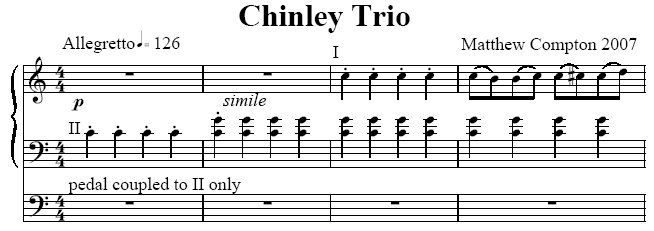 |
| Doubts & Certainties. An example of musical theology? Written as a simple chorale prelude, I came to see the restless music representing doubts, the chorale melody dogmatic certainties and the underlying, ceaseless pedal line the real certainties i.e. existence and consciousness - God without the baggage? But your interpretation is just as valid! | 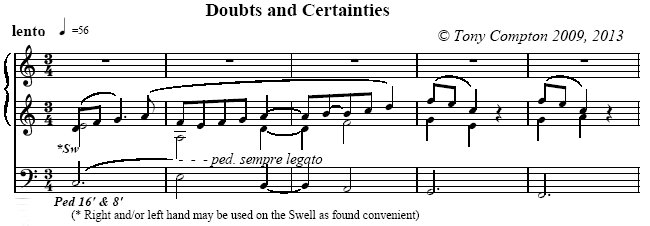 |
| Interlude. More music for contemplation, perhaps? |  |
Ecohymn. My first attempt at writing words as well as music, based on an inspiring essay I had read. Words and music can be downloaded here. They can be freely copied and used in services and other non-commercial contexts, as long as  2020 Tony Compton appears*. Click on the right-hand panel for an organ accompaniment of all six verses. With thanks to our son Matthew and Chris Blackman for helpful suggestions over the harmony, and Maggie Davison for similar assistance with the words. 2020 Tony Compton appears*. Click on the right-hand panel for an organ accompaniment of all six verses. With thanks to our son Matthew and Chris Blackman for helpful suggestions over the harmony, and Maggie Davison for similar assistance with the words.(* for commercial use please contact me at  ). ). |
 |

